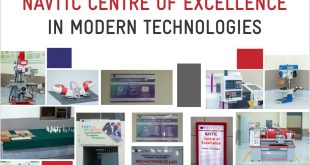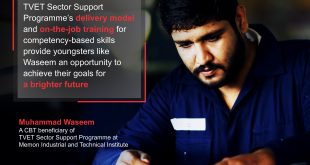The gracefully-decorated seminar hall gave a look of mini Pakistan. The overall mood was upbeat and there was a unique feel of festivity all around. Delegates from country’s different provinces, backgrounds and cultures had gathered under one roof to interact with each other and learn from each other’s’ experiences.
Moments before the formal inauguration of the event, they were seen standing or standing in groups and exchanging niceties with each other. Separated only by distances, these delegates seemed to be part of a big happy family. They felt at home and it took them no time to gel with each other. The venue was Lahore and there was representation from Punjab, Khyber Pakhtun Khwa (KPK), Federally Administered Tribal Areas (FATA), Balochistan, Gilgit Baltistan (GB) and Azad Jammu and Kashmir (AJK).
The venue was Lahore and there was representation from Punjab, Khyber Pakhtun Khwa (KPK), Federally Administered Tribal Areas (FATA), Balochistan, Gilgit Baltistan (GB) and Azad Jammu and Kashmir (AJK).
The participants, most of who were related to the technical and vocational educational and training authorities in their respective provinces, were here to attend the event titled “Knowing Punjab Technical Education & Vocational Training Authority, Sharing and Learning Best Practices in TVET Sector” held in Lahore from March 17, 2014 to March 19, 2014.Besides, there were senior bureaucrats, politicians, development sector experts, media and communication experts and others who were keen to learn from Punjab TEVTA (PTEVTA) with an aim to replicate its successful models in other provinces.
The event was planned jointly by PTEVTA and the TVET Reform Support Programme (TVET RSP), which is co-funded by the European Union, the Embassy of the Kingdom of the Netherlands and the Federal Republic of Germany and implemented by Deutsche Gesellschaft fürInternationale Zusammenarbeit (GIZ) GmbH. The National Vocational and Technical Training Commission (NAVTTC) and the Technical Education and Vocational Training Authorities (TEVTAs) in the provinces have been taken or board to make the programme effective and sustainable.The purpose of bringing so many people together from different provinces is to promote a support and coaching interaction between the more advanced TEVTAs, i.e. Punjab and Sindh, and similar institutions in other provinces and regions which are not as developed and have a long way to go, said Maimoona Sattar, Capacity Development Advisor-Punjab, TVET RSP.
She added seven “Learning Stations” have been set up at the venue where the delegates coming from outside Punjab will sit with PTEVTA officials and get an understanding of the systems which are in place in Punjab. These stations, she said, will cover the topics: i) Management of Data and Monitoring ii) Assuring Quality of Programmes iii) Industry Cooperation and Student Counseling iv) Operations v) Human Resource Management & Administration vi) Finance and vii) Project & Planning.
 This implies that wherever possible, capacity building initiatives with the less developed TEVTAs and TVET bodies will be driven and implemented by PTEVTA or STEVTA, or others that may emerge as strong institutions in the future.
This implies that wherever possible, capacity building initiatives with the less developed TEVTAs and TVET bodies will be driven and implemented by PTEVTA or STEVTA, or others that may emerge as strong institutions in the future.
Farrakh Sair, Secretary, Production & Livelihood Development Department (PLDD), FATA highly rated the content of the three-day event which included field visits to technical and vocational training institutes in Lahore. He said Punjab is doing good work and they will try to replicate its models in FATA though its TVET sector is far from developed at the moment. He said he liked the idea of merging different departments working in the TVET sector as adopted by Punjab. This avoids duplication and makes command and control easy and effective.Besides, he said PTEVTA’s Labour Management Information System (LMIS) is an excellent tool which FATA will try to benefit from. “It’s amazing you get the status of labour available in different sectors as well as other data related to manpower in the province just at one click of the mouse.”
Hamid Ghani Anjum, General Manager (GM), Operations, PTEVTA, said Punjab has a lot to share with other provinces as it was the first to launch TEVTA in the country back in 2002. The other provinces followed. Today PTEVTA runs around 370 institutes and has an enrolment of above 100,000. He said their team was determined to guide and help other provinces establish quality TVET systems.He shared it with the delegates that PTEVTA had a strong liaison with the industry and had set up 17 service centers in different regions of the province. For example, he said there were centers of excellence in hubs of leather, blue pottery, surgical goods etc.
Jawwad Ahmed Qureshi, Chief Operating Officer (COO), PTEVTA said their focus is always on relevance-which means the courses taught in Punjab are as per demand of the job market. The visiting delegates are also interested in knowing how to make their curriculum relevant in this sense, he added.
“The spirit is there, the event is special and people are charged who wanted to make this event happened,” said Susanne Wallstein, component leader of capacity building of TEVTAs under TVET RSP who was excited to see the people fully involved in the activity.
Abdul Hameed, Assistant Director, Directorate of Manpower & Training, Balochistan, said he is impressed by the way PTEVTA carries out surveys and research in different industrial areas to assess demand of jobs in different trades and works on curriculum development accordingly. He also praised the organisers for including field visits in the event programme, especially that to the Government College of Technology, Lahore where a modern laboratory has been set up with the help of Japanese government. “It was there we learnt that one should wear gloves and take off shoes and take other precautionary measures while working in a lab.”
PTVETA GM apprised delegates though their systems are developed there are certain areas which still need attention. For example, he said the industry-institution links are weak, there is considerable time lapse between policy making and policy implementation, labs are not curricula compliant and geographic coverage is not uniform. His point was that though PTEVTA is an example for other provinces it is continuously striving to improve.The delegates enjoyed activities on the sidelines of the event such as their visit to the Indo-Pak border at Wahga and the networking dinner which also attended by PTEVTA partners from different industries.
 Pakistan TVET REFORM Support Programme Technical and Vocational Education and Training (TVET) Reform support Programme
Pakistan TVET REFORM Support Programme Technical and Vocational Education and Training (TVET) Reform support Programme









